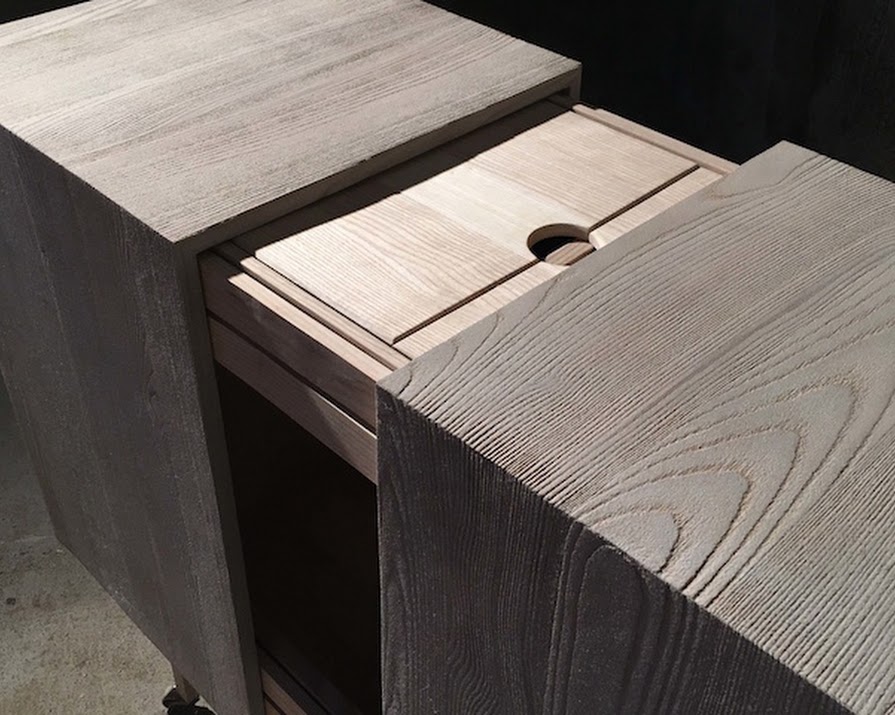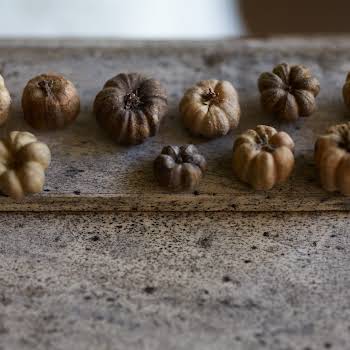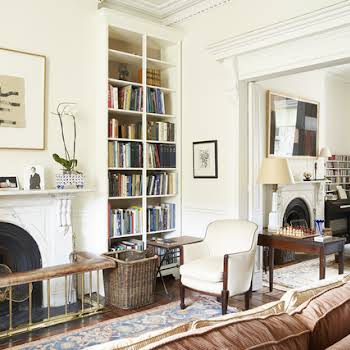
By IMAGE
21st Jun 2016
21st Jun 2016
Cabinet
Laois-born Alan Meredith?was making?furniture long before he became an architect or a designer. Bound for?Glastonbury where he will be creating?unique installations, Alan tells us about his journey to’design and how his inter-disciplinary nature has helped his career.

Why did you move from architecture to making furniture?
When I started studying architecture, I felt it was a discipline that could have a greater impact on one’s environment. Working at a large scale still appeals to me ?but I never lost the urge to find direct forms of engagement. Making furniture and installation allows contact with materials and the process of making on a daily basis. I graduated last September and have been busy catching up on commissions received?while I was studying.

You mainly work in?wood, why?
It has something to do with wood’s connection to place, every tree grew somewhere and its qualities are a result of this. A tree’s life is also very similar to humans: an oak tree might be 150-200 years old. Growing up in the countryside, there was always an abundance of wood from which I made early projects. My work attempts to reveal the inherent properties of wood and some of my most successful work has come from being sympathetic to it and by making forms that are a response to the wood and its natural state.

How did the?collaboration with Glastonbury and Electric Picnic come about?
Having made furniture for a number of years, a breakthrough came in 2012 when I proposed a sculptural bench for the Green Crafts Village at Electric Picnic. The resulting work was well received and we’ve been building on it?ever since. Last year we exhibited at Glastonbury for the first time and this year we hope to develop the work even further.

How have you found the transition from furniture to installations?
The urge to work at a larger scale making temporary installations has been a marvellous way to test new ideas with a large audience. The installations have been a great middle ground between craft and architecture. On the one hand, architecture is ticking social engagement and placemaking [the planning, design and management of public spaces] boxes, while fulfilling the desire to work directly with wood and its qualities.?

How do?you set yourself apart as a designer?
I think the ability and willingness to work across the boundaries of so many disciplines is unique. One day I might be making sculptural vessels, the next I could be working on details for a large sculptural chair. While many different scales are worked on in the studio, the overarching concern is the process of making. This has implications for each step from concept and detail design to the way someone will interact with the final work. An obsession with the materiality and construction along with an openness to work with a sensitivity to the context of each piece, defines the work to date.

At Glastonbury? Keep an eye out for Alan’s two installations. For the rest of the summer, he’s woodturning, working on furniture commissions and exhibiting at the Wood in Focus show, Cill Rialaig Arts Centre, Ballinskelligs, Co. Kerry.























